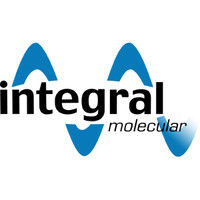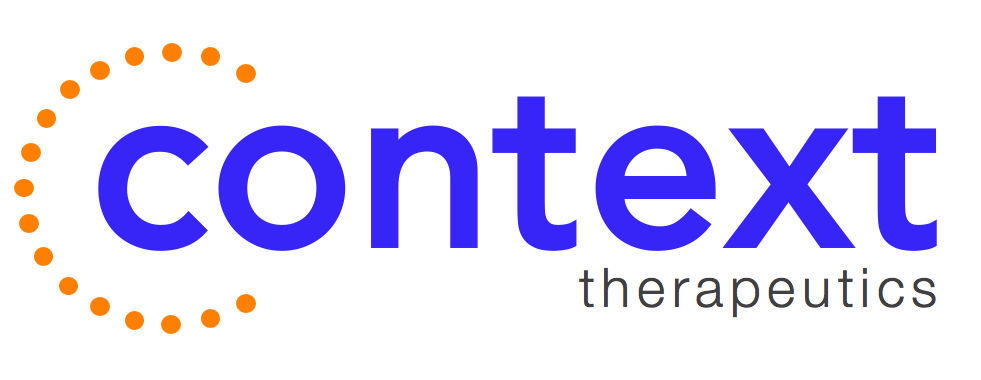预约演示
更新于:2025-05-07

Integral Molecular, Inc.
更新于:2025-05-07
概览
标签
肿瘤
免疫系统疾病
血液及淋巴系统疾病
双特异性T细胞结合器
单克隆抗体
抗体
疾病领域得分
一眼洞穿机构专注的疾病领域
暂无数据
技术平台
公司药物应用最多的技术
暂无数据
靶点
公司最常开发的靶点
暂无数据
| 排名前五的药物类型 | 数量 |
|---|---|
| 双特异性T细胞结合器 | 3 |
| 单克隆抗体 | 3 |
| 抗体 | 2 |
| ADC | 2 |
| 小分子化药 | 1 |
关联
21
项与 Integral Molecular, Inc. 相关的药物作用机制 CD3刺激剂 [+1] |
非在研适应症- |
最高研发阶段临床1期 |
首次获批国家/地区- |
首次获批日期- |
靶点- |
作用机制- |
在研适应症 |
非在研适应症- |
最高研发阶段临床前 |
首次获批国家/地区- |
首次获批日期- |
作用机制 CD3刺激剂 [+1] |
在研适应症 |
非在研适应症- |
最高研发阶段临床前 |
首次获批国家/地区- |
首次获批日期- |
100 项与 Integral Molecular, Inc. 相关的临床结果
登录后查看更多信息
0 项与 Integral Molecular, Inc. 相关的专利(医药)
登录后查看更多信息
77
项与 Integral Molecular, Inc. 相关的文献(医药)2025-03-04·Analytical Chemistry
Development of Receptor-Integrated Magnetically Labeled Liposomes for Investigating SARS-CoV-2 Fusion Interactions
Article
作者: Bowie, Elizabeth ; Willis, Sharon H ; Liermann, Megan ; Johnson, David ; Koti, Neelima ; Frazier, Clayton ; Banerjee, Tuhina ; Yates, Paris ; Santra, Santimukul
2024-12-31·mAbs
The emergence of cell-based protein arrays to test for polyspecific off-target binding of antibody therapeutics
Review
作者: Navia, Carmen T. ; Doranz, Benjamin J. ; Sullivan, Jonathan T. ; Norden, Diana M.
2023-04-01·Cell Reports
Systematic analysis of human antibody response to ebolavirus glycoprotein shows high prevalence of neutralizing public clonotypes
Article
作者: Gilchuk, Pavlo ; Ilinykh, Philipp A ; Castellana, Natalie ; Williams, Jazmean K ; Davidson, Edgar ; Huang, Kai ; Chen, Elaine C ; Diaz, Summer ; Zost, Seth J ; Selverian, Christopher N ; Saphire, Erica Ollmann ; Bonissone, Stefano ; Gainza, Christopher ; Trivette, Andrew ; Sutton, Rachel E ; Myers, Luke ; Kona, Chandrahaas R ; Doranz, Benjamin J ; Day, Samuel ; Reidy, Joseph X ; Crowe, James E ; Binshtein, Elad ; Carnahan, Robert H ; Bukreyev, Alexander
30
项与 Integral Molecular, Inc. 相关的新闻(医药)2024-10-23
Integral Molecular, a company that develops vaccines and therapeutics, announced a five-year $8 million contract from the National Institutes of Health's National Institute of Allergy and Infectious Diseases (NIAID).
The funding will be used to support the company's continuing research into emerging viruses recognized as potential pandemic threats.
This marks the fourth similar contract awarded to the company in 15 years. Prior contracts allowed responses to virus outbreaks such as SARS-CoV-2, Zika, Ebola, dengue and chikungunya.
Integral Molecular will utilize its mapping platform to pinpoint antibody binding sites (epitopes) on viruses, characterizing immune responses to viral threats.
According to the company, this type of information can help scientists design effective vaccines.
Additionally, Integral Molecular's Reporter Virus Particles (RVPs) is expected to play a vital role in the research.
In a statement, the company said the non-replicative virus particles allow safe and high-throughput neutralization studies of highly pathogenic viruses with the use of standard laboratory facilities, and RVPs empower researchers to quickly develop vaccines and therapeutics.
The NIAID contract will allow Integral Molecular to expand its research on potential pandemic threats, including Rift Valley Fever, Crimean-Congo Hemorrhagic Fever and Enterovirus D68 viruses.
"We are grateful to NIAID for their continued support and trust in our capabilities," Benjamin Doranz, CEO of Integral Molecular, said in a statement.
"Viral threats can emerge quickly and with little warning. This contract enables us to contribute to pandemic preparedness by focusing on understudied viruses identified as potential threats, using our technologies to make virology research more accessible to laboratories around the world."
THE LARGER TREND
In June, Integral Molecular, received ISO 9001 certification for the quality systems and processes used in their virology offerings.
In April, Integral Molecular launched its Virus Neutralization Assay Services, which permitted researchers to rapidly obtain high-quality data to advance their vaccines and therapeutic antibodies. Neutralization Assay Services allow diverse applications including neutralization profiling for antibodies targeting viral proteins.
That same month, researchers at the National Cancer Institute (NCI), part of the National Institutes of Health (NIH), developed an artificial intelligence tool that predicts whether a patient will respond to cancer-treatment drugs using individual tumor cells, according to a study published in Nature Cancer.
Conventional approaches to drug-patient matching center on bulk sequencing of tumor DNA and RNA. The new AI approach, PERCEPTION, takes advantage of single-cell RNA sequencing, which provides better-resolution data to fine-tune predicted drug responses.
In 2022, Ro, a direct-to-patient care company, secured an agreement with the National Institute on Aging (NIA) to develop the Registry for Equal Access to Clinical Trials in Alzheimer's Disease (REACT-AD).
Ro will employ its telehealth platform to screen and recruit patients who are at a heightened risk for developing Alzheimer's disease or other related dementia to join REACT-AD for potential participation in NIA-conducted and funded clinical trials. The NIA, part of the NIH, was charged with analyzing the data received and supervising the publication of research findings that emanate from REACT-AD.
疫苗临床研究
2024-03-27
ISO 9001 certification validates Integral Molecular's quality processes for its Membrane Proteome Array, reflecting the company's commitment to quality.
PHILADELPHIA, March 27, 2024 /PRNewswire/ -- Integral Molecular, a leader in antibody discovery and characterization, proudly announces the achievement of IS0 9001 certification for the quality systems and processes used in its Membrane Proteome Array™ (MPA) specificity testing services. This platform is a vital tool for biotechnology and pharmaceutical companies to assess the safety and off-target reactivity of therapeutic antibodies and other biologics.
Despite their reputation for 'exquisite specificity', antibodies and antibody-based therapies, such as CAR-T cells, frequently demonstrate unexpected off-target binding. The MPA utilizes its collection of over 6,000 native-conformation membrane proteins that encompass nearly the entire human membrane proteome to de-risk therapeutics and reveal unintended off-target liabilities early in drug development.
Learn more about the
Membrane Proteome Array™
ISO 9001 is a globally recognized standard for quality management systems (QMS) that encompass process controls, comprehensive documentation, plans for corrective action, and continuous improvement.
"Integral Molecular has maintained a culture of commitment to delivering exceptional quality products and services for over 20 years. As the industry increasingly relies on MPA specificity profiling to support drug safety, we are delighted to receive ISO 9001 Certification to reinforce our commitment to quality for our customers."
-Rachel Fong, Director of Sales and Alliances, Integral Molecular
With the ability to pinpoint the identity of unanticipated protein interactions that could pose safety consequences, the MPA was accepted by the FDA to participate in the agency's ISTAND program to qualify new drug development tools for IND, NDA, or BLA applications. The MPA qualification plan was submitted to the FDA in 2023 and is currently under review.
About Integral Molecular
Integral Molecular (integralmolecular.com) is the industry leader in creating and commercializing transformative technologies that advance the discovery of therapeutics against difficult protein targets. With 20+ years of experience focused on membrane proteins, viruses, and antibodies, Integral Molecular's technologies have been integrated into the drug discovery pipelines of over 600 biotech and pharmaceutical companies to help discover new therapies for cancer, diabetes, autoimmune disorders, and viral threats such as SARS-CoV-2, Ebola, Zika, and dengue viruses.
Follow Integral Molecular on LinkedIn
Press Contact:
Integral Molecular, Inc.
Soma Banik, PhD, Director of Public Relations
215-966-6061
[email protected]
SOURCE Integral Molecular
2024-03-21
·药融圈
▲5月30-31日 第八届广州生物医药创新者峰会 扫码立即报名 注:本文不构成任何投资意见和建议,以官方/公司公告为准;本文仅作医疗健康相关药物介绍,非治疗方案推荐(若涉及),不代表平台立场。任何文章转载需得到授权。相关阅读:洪观杰析 | 都2024年 你的抗体可开发性(成药性)合格了吗?洪观杰析 | 系统总结生物制品注射液临床使用稳定性的细枝末节洪观杰析 | 剖析蛋白自相互作用—方法篇(一)洪观杰析 | 全维度解读抗体药的纯度与分析方法洪观杰析 | 标准品、对照品、参比品 傻傻分不清洪观杰析 | 带你入抗体行业(4)一文学懂IND阶段药学研究洪观杰析 | 带你入抗体药行业(1)——抗体药基础知识概要洪观杰析 | 带你入抗体药行业(2)——浅谈抗体药靶点和结构选择洪观杰析 | 带你入抗体药行业(3)——抗体发现和终分子确定流程概要洪观杰析 | 最新系统总结—靶向 Treg的癌症治疗策略为了共同交流解决抗体可开发性和CMC技术问题,特设立了抗体药CMC技术交流群,可加主理人微信进群(仅限抗体可开发性和CMC技术相关人员)。在上篇《洪观杰析|都2024年 你的抗体可开发性(成药性)合格了吗?》一文中已经谈到,多反应性问题可能是抗体项目终止的原因之一,且逐步被各家厂家重视。 紧接上篇,本文详细聊聊多特异性和多反应性那些事。 在此感谢“药理毒理开发”公众号小编提供的文献。谈这个话题的背景还是上篇提到的,文献总结的临床终止的抗体项目在疏水性、多反应性等评价维度存在更宽的范围,即数值更差。从另一个维度的评估,可看到已上市和 从文献报道到现在从临床推向上市的产品中没有风险项的比例,明显高于仍在临床上的。首先辨析容易混淆的三个词,多特异性, 非特异性,多反应性。从图中表示可知,多反应性和非特异性是一组同义词。第二篇章讲多特异性那些事。阿斯利康在2005-2010年期间在研的142种小分子药物进行了追踪研究,发现62%的药物由于脱靶被暂停研发。而对于单抗药物来说,美国Integral Molecular公司通过膜蛋白质组芯片技术(Membrane Proteome Array,MPA),对美国市场上在研的一大批单抗药物做了靶点特异性鉴定,发现23%的抗体都具有靶点多特异性(图1),说明脱靶问题也同样是单抗药物研发面对的巨大挑战。一个典型的例子,PD-1抗体camrelizumab(卡瑞利珠)临床出现严重毛细血管瘤,后发现是因为脱靶结合VEGFR所致。而Finlay 等人发现,针对抗 PD-1 抗体卡瑞利珠单抗重新设计副位素可缓解其多特异性问题蛋白质组学目前有报道可高通量用于筛选同一个靶点的抗体,反之能否能应用目前还未报道, 拭目以待。目前市面上主流的两大类方法,蛋白芯片阵列 和 ADCC报告系统,也有CRO服务商,感兴趣可以自行了解。补充两点知识点:细胞阵列中针对分泌蛋白,会采用链固定到膜上并偶联GFP蛋白,最终根据结合的荧光信号确定结合情况。ADCC体系只适用抗体或者Fc融合蛋白,才能连接起ADCC效应第三篇章介绍下多反应性那些事。第二点来聊下多反应性的形成原因。主要有报道的影响多反应性的氨基酸如图所示,其他残基由于其理化性质或总体丰度而很少被鉴定为非特异性结合的贡献者。有报道显示CDR过长导致更长的结合区域易导致非特异性结合。上述为规律总结,而本质也还是过长的CDR区因表面贴片的影响修正了互补位或产生新的互补位。相比负电荷贴片,文献报道中正电荷贴片导致非特异性结合的案例更多。负电荷贴片的存在,会对粘度有一定影响。2023年adimab对计算机结构预测指标和体外湿实验对应关系主要观点如上所示。针对多反应性的指标,文献的描述总结如上,下方做了一个整理,列举了三个主要的指标 正电荷、负电荷、疏水性 对多反应性湿实验数值的相关性。需要注意的是除了HepRT相关性很强,其余相关性并不是很强,只是有趋势。根据其他文献的报道,正、负电荷的影响也有反面例子,因而数值应是维持在一定的范围内,case by case。文献报道的多反应性检测的方法如图所示,除此以外还有PSP等,受限篇幅,本文不详细介绍各个方法,感兴趣的也是自行了解。最后一个篇幅,介绍下检测多特异性和多反应性的时间和策略。按照文献报道的观点,在药物发现过程中纳入多特异性筛选的最佳点是在选择最终候选药物PCC之前(<10),但在先导物优化完成后。通过在此阶段结合多特异性筛选,理想情况下使用表位多样性分子的小面板(n ≤ 10),生成关键决策数据,以便能够选择PCC此图展示了整体评估的决策树,供各位参考。由于多反应性的检测的简便性以及危害的不可预估性,优先进行多反应性评估。 然后再评估特异性。一旦出现脱靶,则要进一步评估可行性(药物是否可以接触到)。若确实脱靶蛋白可以接触,最后评估毒性。版权声明:本文转自生物药大时代,如不希望被转载的媒体或个人可与我们联系,我们将立即删除 活动推荐 8月 • 第六届CMC-China博览会 关键词: 生物药、小分子创新药、药学CMC&创新&CXO、原辅包(点击下方图片查看详情)▼【关于药融圈】药融圈PRHub旨在帮助生物医药科技型企业进行品牌推广及商务拓展服务,针对客户的真实需求制定系统化解决方案,通过“翻译-降维-场景化”将客户的品牌信息以直白易懂的方式被公众知悉,同时在流量渠道覆盖100万+垂直用户基础上实现合作目的,帮助合作伙伴完成从品牌开始到商务为终的闭环营销服务。我们已经完成了数十场线下1000人规模的生物医药研发类会议,涵盖小分子新药,大分子新药,改良型新药,BD跨境交易等多个领域,服务了百余家上市/独角兽/生物技术/制药企业。
临床申请
100 项与 Integral Molecular, Inc. 相关的药物交易
登录后查看更多信息
100 项与 Integral Molecular, Inc. 相关的转化医学
登录后查看更多信息
组织架构
使用我们的机构树数据加速您的研究。
登录
或

管线布局
2025年09月08日管线快照
管线布局中药物为当前组织机构及其子机构作为药物机构进行统计,早期临床1期并入临床1期,临床1/2期并入临床2期,临床2/3期并入临床3期
药物发现
2
11
临床前
临床申请
1
7
其他
登录后查看更多信息
当前项目
| 药物(靶点) | 适应症 | 全球最高研发状态 |
|---|---|---|
CTIM-76 ( CD3 x CLDN6 ) | 实体瘤 更多 | 临床申请 |
抗CCR8 ADC(Integral Molecular) ( CCR8 ) | 实体瘤 更多 | 临床前 |
IM-CKV063 | 基孔肯雅热 更多 | 临床前 |
CLDN18.2-CAR-T (Integral Molecular) ( CLDN18.2 ) | 实体瘤 更多 | 临床前 |
P2X3 program(Integral Molecular) ( P2X3 receptor ) | 疼痛 更多 | 临床前 |
登录后查看更多信息
药物交易
使用我们的药物交易数据加速您的研究。
登录
或

转化医学
使用我们的转化医学数据加速您的研究。
登录
或

营收
使用 Synapse 探索超过 36 万个组织的财务状况。
登录
或

科研基金(NIH)
访问超过 200 万项资助和基金信息,以提升您的研究之旅。
登录
或

投资
深入了解从初创企业到成熟企业的最新公司投资动态。
登录
或

融资
发掘融资趋势以验证和推进您的投资机会。
登录
或

Eureka LS:
全新生物医药AI Agent 覆盖科研全链路,让突破性发现快人一步
立即开始免费试用!
智慧芽新药情报库是智慧芽专为生命科学人士构建的基于AI的创新药情报平台,助您全方位提升您的研发与决策效率。
立即开始数据试用!
智慧芽新药库数据也通过智慧芽数据服务平台,以API或者数据包形式对外开放,助您更加充分利用智慧芽新药情报信息。
生物序列数据库
生物药研发创新
免费使用
化学结构数据库
小分子化药研发创新
免费使用
